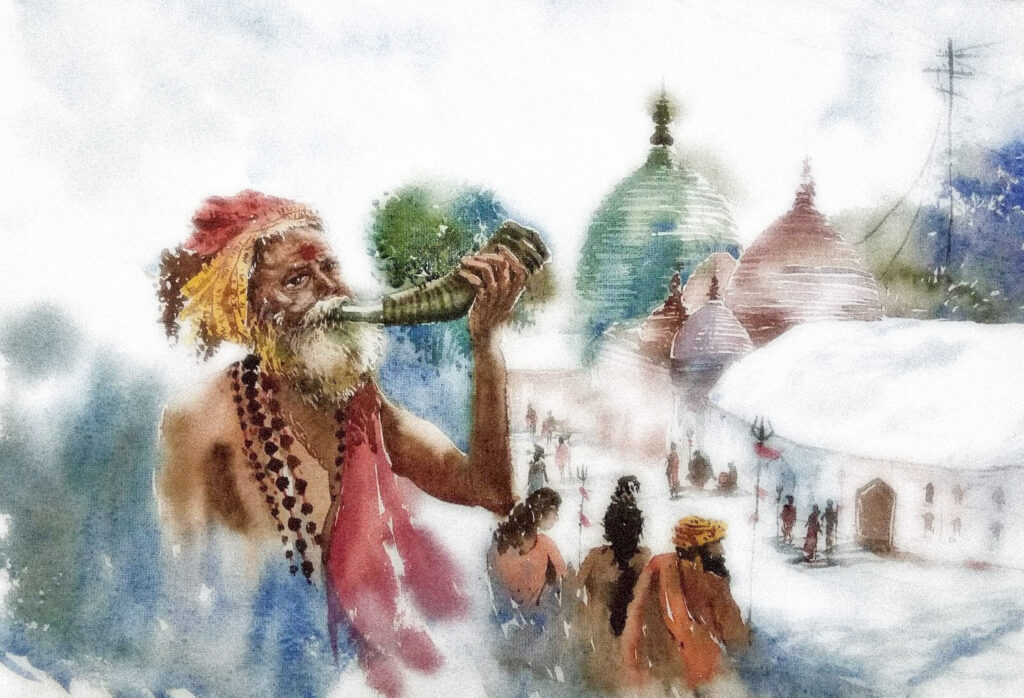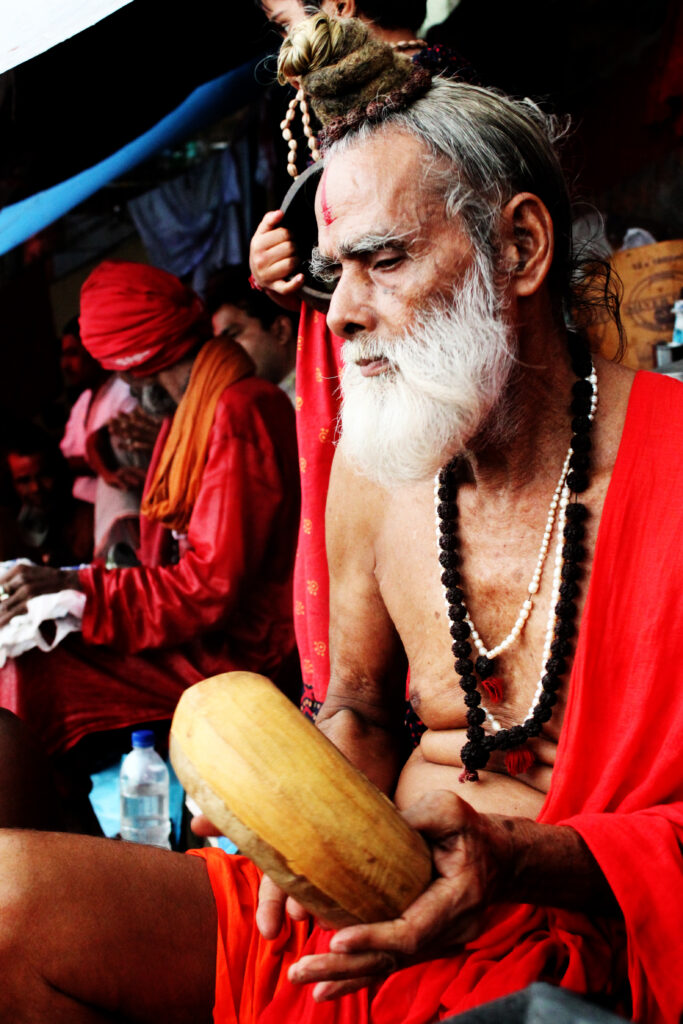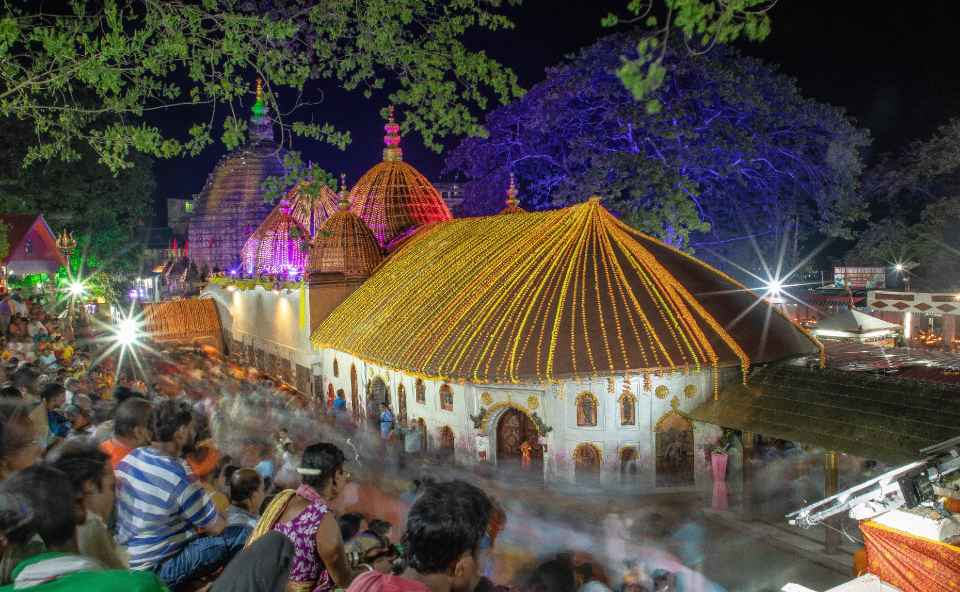Ambubachi – The Sacred Menstrual Festival of Kamakhya Temple
- Vijay Iyer
- June 27, 2023
- 0 Comment
Ambubachi, also known as Ambubasi, is a famous and religious event observed in Guwahati, Assam, India, near the Kamakhya Temple. This one-of-a-kind celebration is centred on the Hindu goddess Kamakhya’s menstruation and is of immense cultural and religious significance. Let’s look more closely at Ambubachi and its significance.

Origin and Importance
Hindus believe that Kamakhya Devi, the goddess of passion and fertility, goes through her menstrual cycle during the Ambubachi period. The festival represents the annual cycle of creation, growth, and regeneration. It is thought that during this period, the goddess’s and the temple’s power peaks, bringing worshippers from all over.
Ambubachi’s origins can be traced back to an ancient mythology. Lord Shiva is said to have carried his wife Sati’s lifeless body and wandered the world in grief after her death. A portion of Sati’s body fell at the Nilachal Hill near Guwahati, where the Kamakhya Temple now exists. The temple is regarded as one of the most prominent Shakti Peethas, or locations where the goddess Sati’s body is said to have fallen. Kamakhya Devi is regarded as the personification of divine feminine power.
Timing and duration
During the monsoon season, usually in June, Ambubachi is observed for four days. The festival begins on the seventh day of the Hindu month of Aashad (about the middle of June) and ends on the tenth. Based on the Hindu lunar calendar, these dates may vary somewhat from year to year.
Customs and Rituals
Temple Closure: During Ambubachi, the Kamakhya Temple is closed for three days. The temple is closed since the goddess is supposed to be going through her menstrual cycle. It is not regarded impure, but unsafe as the cave temple is vibrant with energy beyond the tolerance level of men
Fasting & Austerity: As a symbol of reverence for the goddess, devotees fast and participate in harsh austerities during these days. During this time, some people abstain from eating certain foods or even drinking water. Austerity and abstinence are viewed as acts of spiritual cleansing and dedication.
Ritual Bathing: On the fourth day, once the menstrual cycle has ended, the temple reopens, and a ritual bath is performed to cleanse the goddess and the sanctum sanctorum. The festival concludes with this event, known as Devi Snan. Devotees believe that by taking the ritual bath, the water becomes sacred and auspicious. Pilgrims frequently gather this water as a treasured relic.
Spiritual Importance
For followers, Ambubachi has significant spiritual importance. It is thought that during the goddess’s menstrual period, she surpasses her status as a deity and becomes a regular woman. This menstrual celebration honours the divine feminine power and dispels traditional taboos about menstruation. It reminds us that menstruation is a natural and sacred process that represents fertility, creation, and the cyclical nature of life.

Celebrations of Culture
Ambubachi is a colourful cultural event in addition to religious ceremonies. The music of devotional chants, mantras, and hymns dedicated to the goddess fills the air around the Kamakhya Temple. Pilgrims and devotees from all across the country come to seek blessings and take part in various cultural programmes. Traditional dance performances, music recitals, and cultural displays are organised to highlight Assam’s rich cultural history.
Prayers and Pilgrimage
During the Ambubachi ceremony, the Kamakhya Temple becomes a gathering place for worshippers and pilgrims. People travel from all over the country to visit the temple, braving the monsoon rains. They give prayers, seek blessings, and engage in various religious ceremonies in order to connect with Kamakhya Devi’s heavenly essence. The celebration allows worshippers to strengthen their spiritual link with the goddess and ask her blessings for good health, fertility, and prosperity.

Ambubachi is a unique and respected celebration that commemorates the goddess Kamakhya’s miraculous menstruation. It represents the feminine power and confronts societal taboos related with menstruation. The holiday has religious significance as well as cultural value, bringing people together in devotion and celebration. Ambubachi displays the rich tapestry of Indian traditions as well as the enduring spirit of faith and devotion. It continues to inspire and motivate adherents, cultivating a close relationship with the divine and enjoying the beauty of life’s cycles.
- Ambubachi
- Ambubasi
- Assam
- Austerity
- Creation
- CulturalCelebrations
- CulturalSignificance
- DeviSnan
- DivineFemininePower
- Fasting
- Fertility
- GoddessKamakhya
- Hinduism
- India
- IndianTraditions
- KamakhyaTemple
- Menstruation
- Mythology
- Pilgrimage
- Prayers
- Regeneration
- ReligiousEvent
- RitualBathing
- Rituals
- ShaktiPeetha
- SpiritualImportance
- Taboos
- TempleClosure








